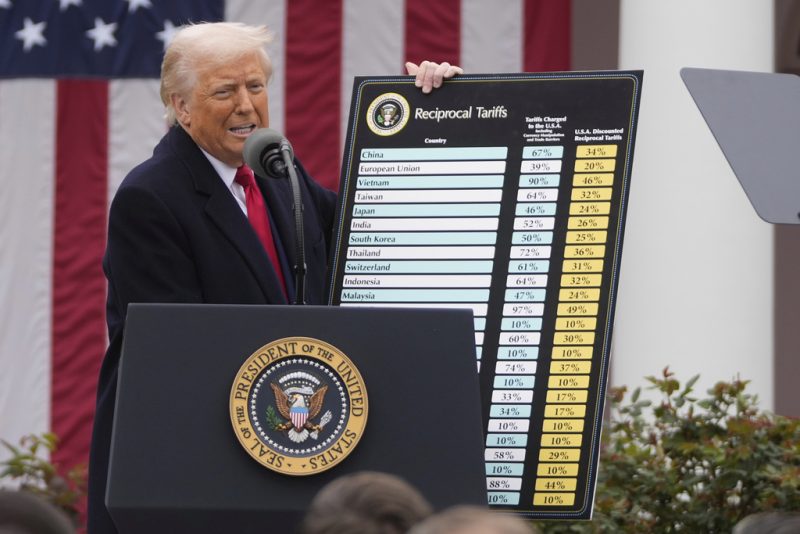In a significant legal decision, a federal court has blocked most of President Donald Trump’s import tariffs, a cornerstone of his efforts to rejuvenate American manufacturing. The ruling presents a substantial challenge to the administration’s economic strategy aimed at bringing manufacturing jobs back to the United States.
Federal court blocks most of President Trump’s tariffs

Key Takeaways:
- Federal Court Blocks Tariffs: The court halted most of President Trump’s tariffs on imports from other countries.
- Impact on Manufacturing Plan: The tariffs were essential to Trump’s goal of boosting U.S. manufacturing.
- Tariffs Targeted Imports Globally: The tariffs affected a range of imports from various countries.
- Legal Challenge to Economic Strategy: The decision represents a legal obstacle to the administration’s trade policies.
- Potential Shift in Trade Policies: The ruling could lead to changes in future economic and trade strategies.
A Judicial Setback for Tariff Strategy
A federal court has blocked most of President Donald Trump’s tariffs imposed on imports from other countries, dealing a significant blow to a key component of his economic agenda. The tariffs, designed to encourage domestic production by making imported goods more expensive, were a cornerstone of the administration’s plan to revitalize American manufacturing.
The Role of Tariffs in Manufacturing Revival
President Trump’s tariffs targeted a wide array of imported goods, aiming to reduce dependency on foreign products and bring manufacturing jobs back to the United States. By imposing additional costs on imports, the administration sought to make American-made products more competitive both domestically and internationally.
Court’s Decision Challenges Economic Policies
The court’s ruling undermines a substantial portion of this strategy. While specific details of the court’s reasoning were not disclosed, the blockage of the tariffs signifies a judicial challenge to the methods employed by the administration to achieve its economic objectives. This decision may force a reassessment of how to promote domestic manufacturing within legal constraints.
Implications for Future Trade Practices
The blocking of these tariffs not only affects current trade dynamics but also sets a precedent for how similar economic policies might be received judicially. It underscores the balance of power between the executive branch’s policy initiatives and the judicial system’s role in evaluating their legality.
Looking Ahead
As the administration grapples with this setback, the future of its manufacturing and trade policies remains uncertain. The commitment to bringing manufacturing back to the U.S. continues to be a priority, but new strategies may need to be developed in light of the court’s decision. The impact of this ruling may be felt across various industries that were affected by the tariffs, potentially altering the landscape of American manufacturing and trade relations.











